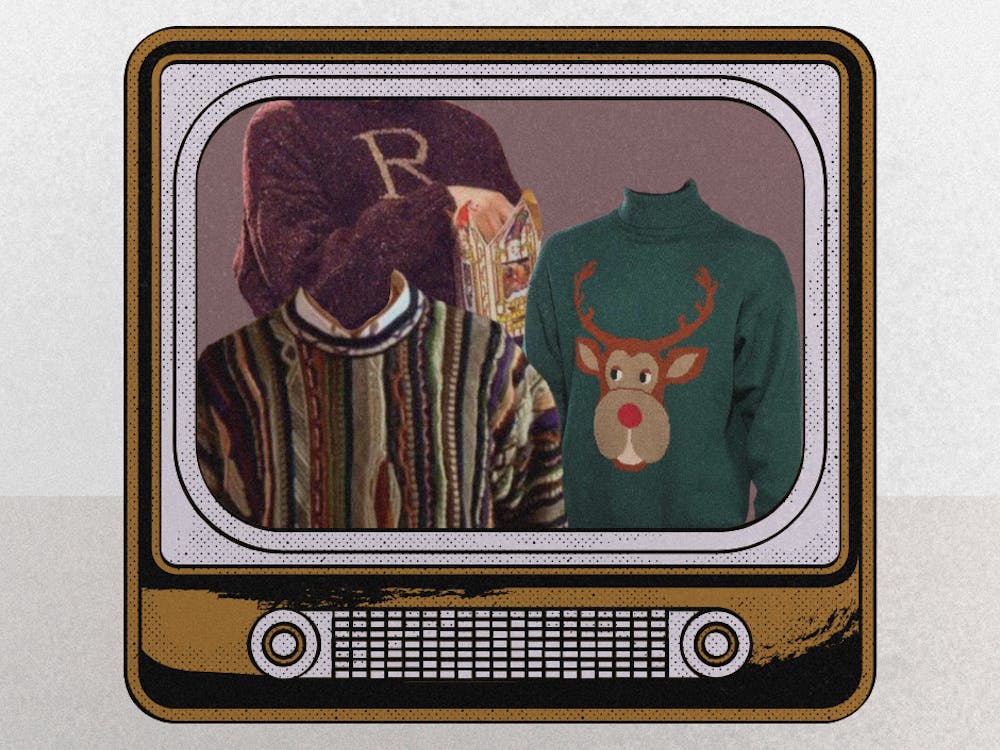“The machine does not isolate man from the great problems of nature but plunges him more deeply into them,” the great French poet Antoine de Saint-Exupéry wrote in his 1939 memoir “Wind, Sand and Stars.” This issue lies at the heart of “Her,” the latest cinematic effort from writer-director Spike Jonze.
The film, which blurs the line between romantic comedy and heavy drama, showcases the terrific power of technology in helping us to cope with trauma and create human connections, but it also emphasizes the limitations of systems and machines in offering a rich and sustainable lifestyle.
Offering profound and nuanced commentary on this front, the film excels as both intellectual exercise and entertainment piece. Without ever resorting to heavy-handed tactics or sentimentalizing, Jonze and his team of talented filmmakers and actors have created an honest and captivating tale of love, loss, heartbreak, personal passion and every other term likely to appear in a trailer for the latest Nicholas Sparks sobfest.
“Her” tells the story of Theodore Twombly (Joaquin Phoenix), an ailing soon-to-be divorcee who makes a living off of writing (or rather, dictating) love letters and greeting cards for individuals and couples looking to express their love in particularly eloquent ways. Unfortunately, despite his apparent knack for capturing other people’s emotions and desires on paper, Twombly proves less than successful at communicating his own feelings and coping with the messiness inherent in human relationships. Twombly’s story takes a turn, however, when he meets Samantha (Scarlett Johansson in a voice-only role), an operating system who manages Theodore’s life and offers insight and companionship.
Samantha is like Siri on steroids. When Twombly falls hard for her, the feeling appears to be mutual. Despite lacking a body, Samantha seems to provide the perfect partner for Theodore, at least until a deeper and more complex emotional state begins taking root within her, burdening the relationship with the same issues that hinder and often sever conventional human bonds, along with a host of other complications created by Samantha’s status as a machine.
Some of the film’s humor begins to fall away as Twombly and Samantha are forced to come to terms with their limitations, flaws, desires and dreams, but “Her” refuses to obey cinematic conventions and clichés. Its plot proves unpredictable yet consistently plausible, as we come to understand and sympathize with a love affair between a man and “his laptop,” as Twombly’s ex-wife Catherine (Rooney Mara) quips.
Importantly, there are no heroes or villains here, and every character and perspective in the film receives respect and attention from the filmmakers. When Catherine, for instance, chastises Twombly for his inability to work through problems and cope with real emotions, we see her point and question Twombly’s decision to flee from humanity and cling to technology. The brilliance of the film is that even as we agree with Catherine, we also identify with the highs and lows of Twombly and Samantha’s relationship, and we viscerally feel Theodore’s pain and struggles throughout the film, in part thanks to Phoenix’s expert performance.
The acting on display in “Her” is nothing short of mesmerizing. From the leading man to the smallest bit player, every performer involved in the production brings warmth, sincerity and nuance to the project. The performances make the film’s relationships, whether major or minor, come across as frighteningly real. Phoenix, often prone to mumbling or scenery-chewing his way through his roles, gives a career-best performance as Twombly, whom he imbues with both imperfections and charm. As Samantha, Johansson is almost as good, doing more with her voice alone than most actors can accomplish with their entire bodies.
Still, the film’s standout turns come from Rooney Mara, Amy Adams and Chris Pratt. Rather than play Catherine as a shrill shrew or a disinterested straight-shooter, Mara brings passion and charisma to the role; she makes us believe that Twombly could have fallen for her years before the film takes place, but an undercurrent of sadness and volatility within her also allows us to understand why the marriage fell apart. In more humorous roles, Adams and Pratt elicit both laughter and sympathy as Twombly’s best friend and his coworker, respectively.
Beyond the film’s acting, the exquisite art direction, stunning cinematography and stellar score come together to create a quirky atmosphere that, while never drawing attention to itself, both hints at the film’s futuristic timeframe and offers an intriguing setting for even the most trivial of moments. “Her” casts a suspicious gaze on technology and its claim to free us from our human struggles, but through its own formal beauty, the film also showcases the awe-inspiring sights and sounds of both the natural and the artificial worlds.
“Her” may make you think twice about your bond with Siri and the voice inside your GPS, but more likely than not, it will also move you and challenge your view on human bonds.






